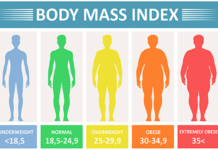Introduction
Hormones are chemical messengers crucial in regulating numerous physiological processes inside the body, along with metabolism, growth, replica, temper, and sleep. The body’s capabilities harmoniously sell standard health and well-being when those hormones are balanced. However, imbalances in hormone levels can cause a myriad of health troubles, starting from mood swings and weight advantage to infertility and continual sicknesses. Therefore, accomplishing and preserving hormonal stability is paramount for optimal health. In this article, we can delve into the importance of balancing hormones and discover powerful strategies to reap hormonal concord.
Understanding Hormonal Imbalance
Hormonal imbalance occurs when there may be either an extra or deficiency of certain hormones inside the frame. This imbalance can result from strain, inadequate weight loss plans, loss of workouts, environmental pollution, ageing, and underlying clinical conditions. Common hormones that can be regularly imbalanced include insulin, cortisol, thyroid hormones (T3 and T4), estrogen, progesterone, testosterone, and increased hormones.
Effects of Hormonal Imbalance on Health
The consequences of hormonal imbalance can manifest in several ways and can impact each system inside the body. Some of the not unusual health problems related to hormonal imbalance consist of:
Weight Gain: Imbalances in hormones such as insulin, cortisol, and leptin can result in accelerated appetite, cravings for sugary and fatty foods, and reduced metabolism, resulting in weight gain and weight problems.
Mood Disorders: Hormonal fluctuations, specifically in estrogen, progesterone, and serotonin, can contribute to mood swings, irritability, tension, and depression.
Fatigue: Imbalances in thyroid hormones and cortisol can disrupt energy production and regulation, leading to chronic fatigue and lethargy.
Sleep Disturbances: Disruptions in melatonin, cortisol, and different sleep-regulating hormones can affect sleep quality and duration, leading to insomnia and sleep disorders.
Reproductive Issues: Hormonal imbalances can affect reproductive health in men and women, leading to infertility, menstrual irregularities, polycystic ovary syndrome (PCOS), erectile dysfunction, and occasional libido.
Metabolic Disorders: Imbalances in insulin and leptin can disrupt glucose metabolism and cause insulin resistance, metabolic syndrome, and type 2 diabetes.
Bone Health: Hormonal imbalances, mainly in estrogen and testosterone, can contribute to bone loss and boost the chance of osteoporosis and fractures, particularly in postmenopausal girls.
Strategies for Balancing Hormones
Achieving hormonal balance requires a complete technique that addresses numerous way of life elements, along with weight-reduction plans, workouts, pressure management, sleep hygiene, and environmental exposures. Here are some effective strategies for balancing hormones and selling standard fitness:
Eat a Balanced Diet: Nutrition is crucial in hormone production and regulation. Focus on eating entire, nutrient-dense ingredients wealthy in fibre, wholesome fat, lean proteins, nutrients, and minerals. Include results, greens, whole grains, nuts, seeds, and lean protein assets in your diet. Limit processed ingredients, delicate sugars, trans fat, and excessive alcohol intake, which can disrupt hormone levels.
Manage Stress: Chronic stress can dysregulate cortisol and other pressure hormones, mainly due to hormonal imbalance. Practice pressure-decreasing strategies consisting of mindfulness meditation, deep breathing physical games, yoga, tai chi, progressive muscle relaxation, and spending time in nature. Prioritize self-care activities that promote rest and rejuvenation.
Exercise Regularly: Physical activity has been proven to improve hormone stability by decreasing stress, promoting weight control, enhancing insulin sensitivity, and boosting temper. Aim for at least one hundred fifty minutes of slight-intensity workout or seventy-five minutes of full life-intensity workout in keeping with the week, mixed with energy schooling exercises to maintain muscular tissues and metabolism.
Get Adequate Sleep: Quality sleep is critical for hormone production, regulation, and metabolism. Aim for 7-nine hours of uninterrupted sleep in keeping with nighttime and establish a consistent sleep agenda. Create a calming bedtime routine, avoid stimulants like caffeine and electronics earlier than bedtime, and create a conducive sleep environment free of noise and mild distractions.
Avoid Environmental Toxins: Exposure to endocrine-disrupting chemicals (EDCs) in plastics, pesticides, household cleaners, personal care merchandise, and environmental pollution can disrupt hormone stability. Minimize exposure to EDCs by deciding on herbal, natural merchandise, using glass or stainless steel packing containers for food and liquids, filtering faucet water, and reducing publicity to air pollution.
Maintain a Healthy Weight: Excess body fats, especially visceral fats around the abdomen, can disrupt hormone stability and growth, as well as the danger of insulin resistance, infection, and hormonal imbalances. Adopt a healthy way of life that includes everyday physical hobbies and a balanced food plan to achieve and preserve a healthy weight.
Consider Hormone Testing: If you believe you studied hormonal imbalance or revel in continual symptoms despite the way of life changes, remember to consult with a healthcare provider to evaluate hormone ranges through blood, saliva, or urine checking out. Based on the effects, suitable remedy alternatives, hormone replacement therapy (HRT), nutritional supplements, or way-of-life interventions may be endorsed.
Hormone Replacement Therapy (HRT): Insome instances, hormone replacement therapy can be advocated to restore hormone degrees to ordinary degrees. This method is commonly used to relieve signs and symptoms associated with menopause, such as warm flashes, night sweats, vaginal dryness, and temper swings. HRT entails the use of synthetic or bioidentical hormones, which include estrogen, progesterone, and testosterone, in the shape of capsules, patches, creams, or pellets. It’s crucial to interact intently with a healthcare company to determine the right type, dose, and duration of hormone therapy primarily based on character desires and health issues.
Herbal Remedies and Supplements: Certain herbs and supplements were proven to support hormone stability and alleviate signs and symptoms associated with hormonal imbalances. Examples consist of:
Black cohosh: Often used to alleviate menopausal symptoms consisting of warm flashes and temper swings.
Chasteberry (Vitex): Commonly used to regulate menstrual cycles and alleviate premenstrual syndrome (PMS) signs.
Dong quai: Traditionally used in Chinese medicine to assist girls’s reproductive health and alleviate menstrual cramps.
Maca root: Known for its adaptogenic properties, maca might also assist in the stability of hormones and improve libido and electricity tiers.
Omega-three fatty acids: Found in fish oil and flaxseed oil, omega-3s have anti-inflammatory residences and can help modify hormone manufacturing.
While herbal treatments and dietary supplements may be helpful, it is essential to discuss them with a healthcare company before incorporating them into your regimen, specifically if you’re taking medications or have underlying health conditions.
Conclusion
Balancing hormones is critical for retaining premier fitness and well-being. Adopting a holistic approach that addresses weight loss programs, exercising, pressure control, sleep hygiene, and environmental elements may guide hormone stability and promote general fitness. Listen in your frame, prioritize self-care, and seek expert steerage to obtain hormonal harmony and maintain your great existence.






















